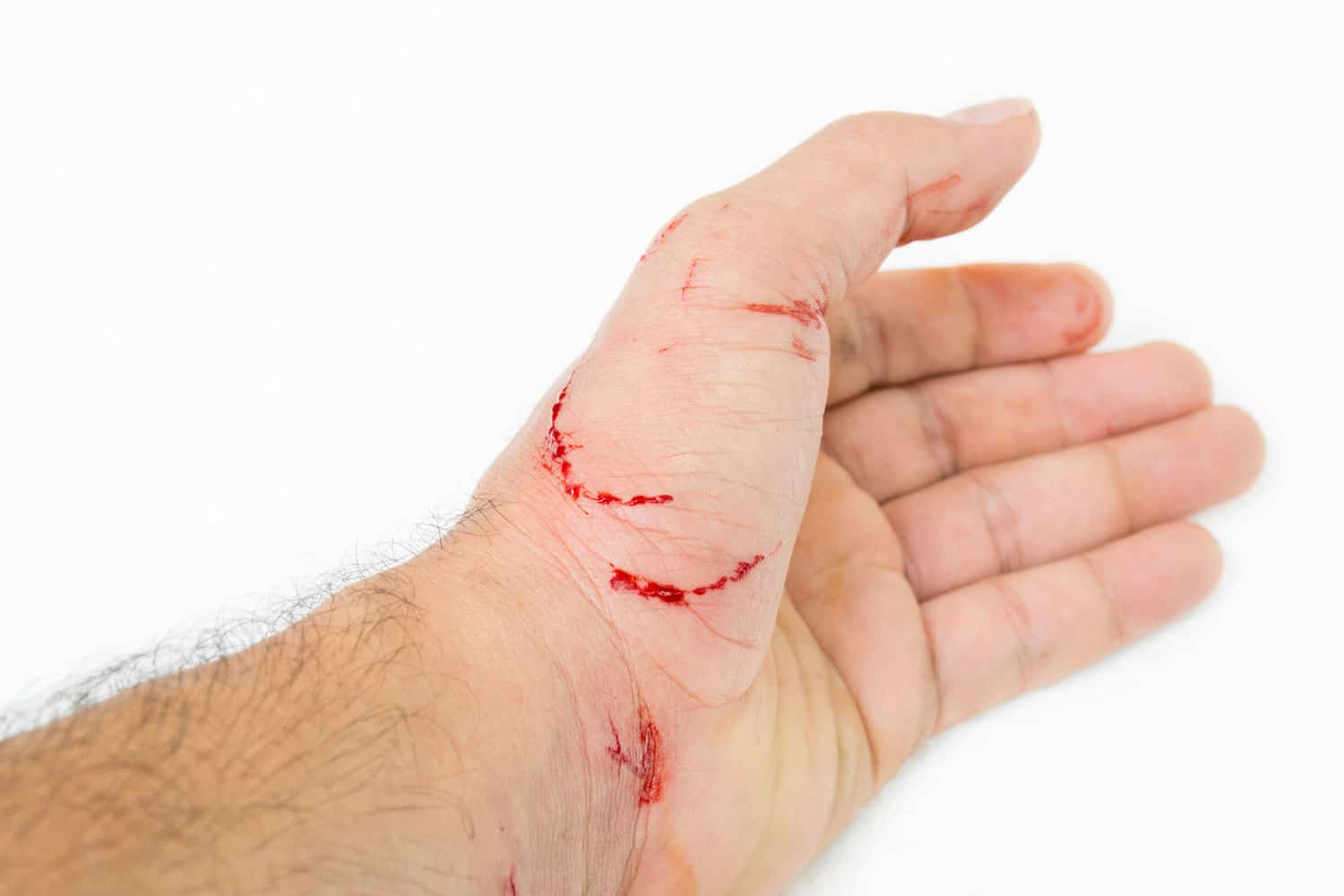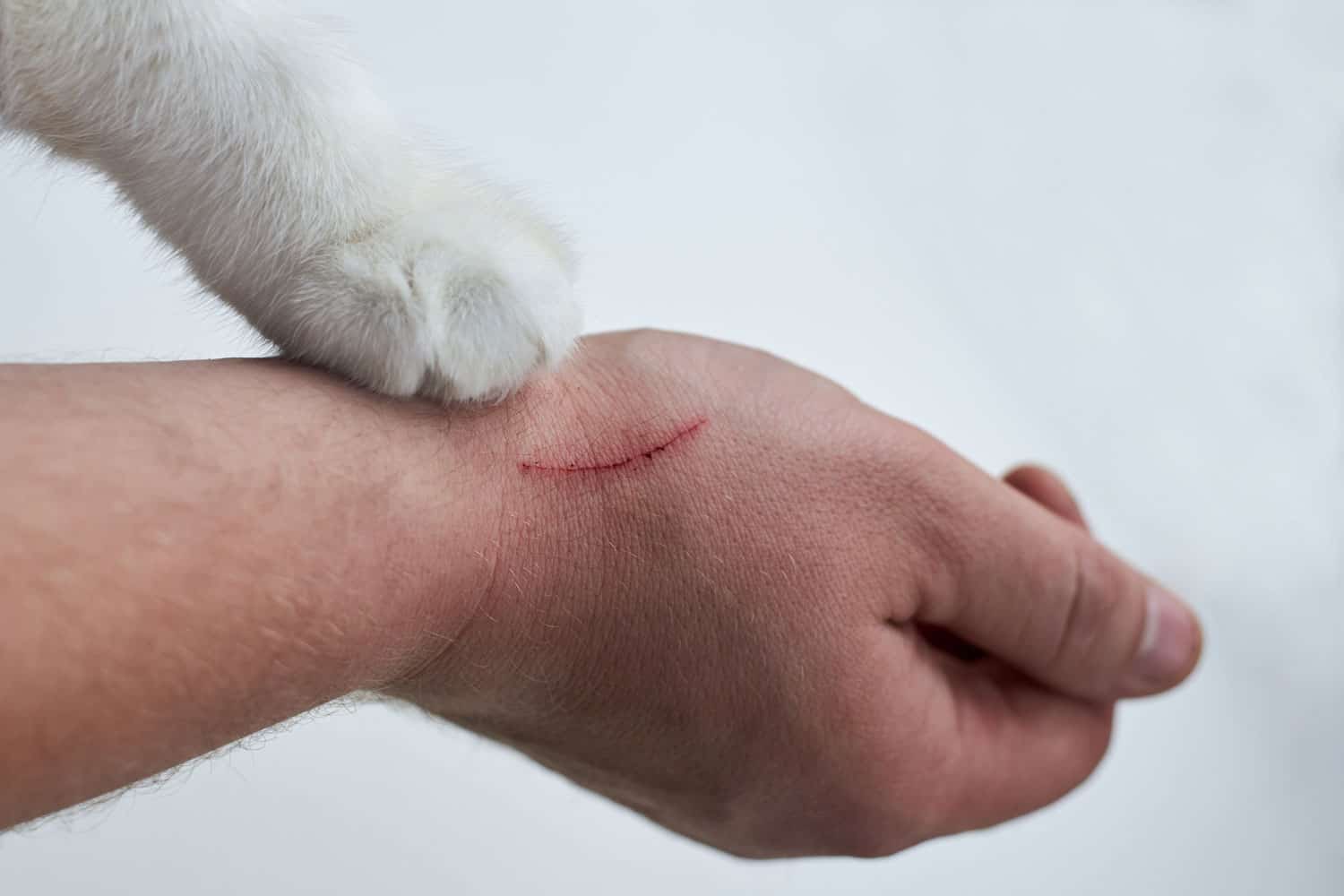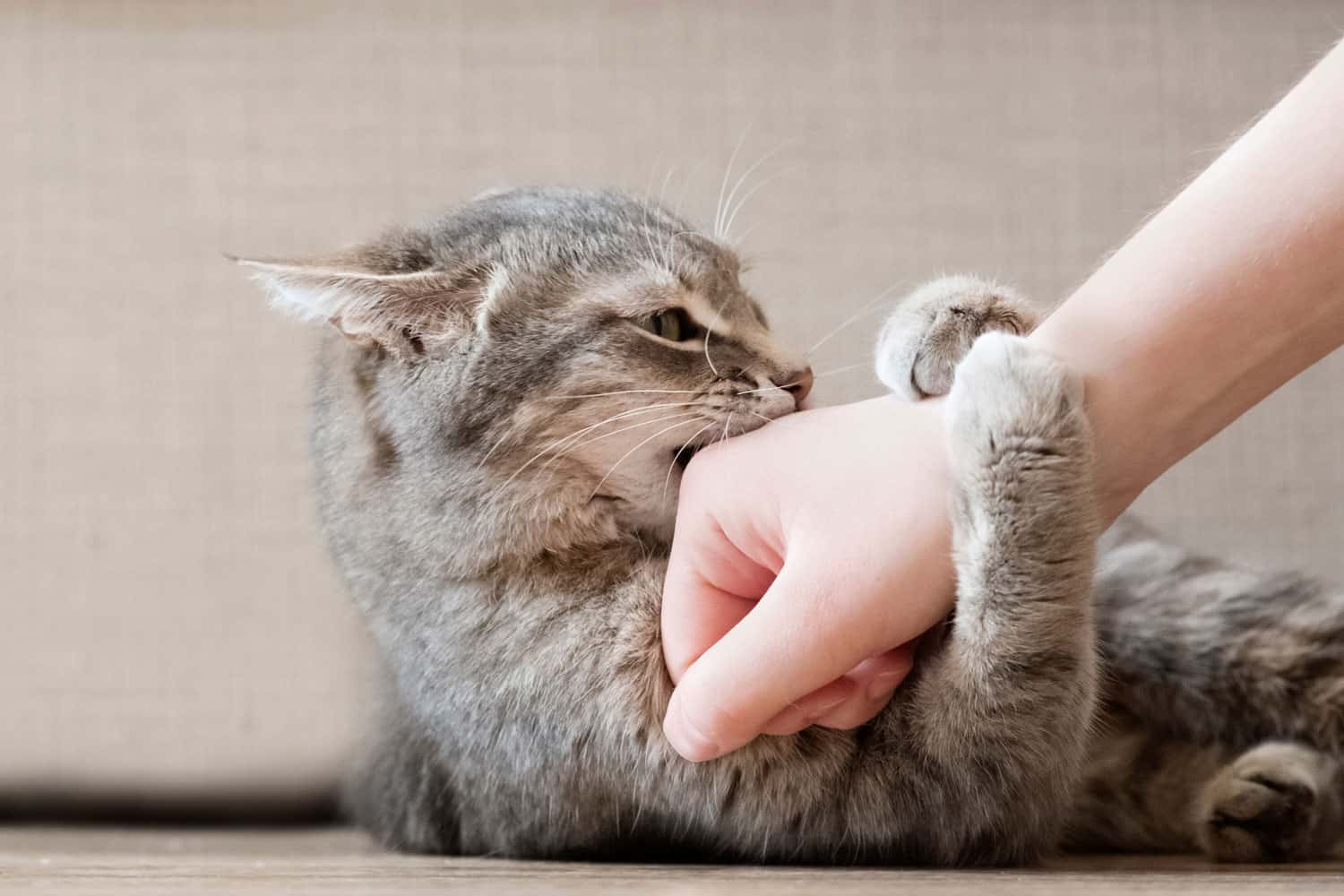Our sweet cats are also fierce predators that have teeth and claws and know how to use them.
When it comes to cat-induced injuries, an ounce of prevention is worth a pound of cure, so if your cat tends to bite and/or scratch people, please read our article about Cat Aggression Toward People.
However, even the most docile cat can bite when in fear, and some cats are more prone to aggressive behavior than others.
As a responsible owner, you have to be aware of the risks of cat bites and know how to treat the wounds to reduce those risks.
The information in this article is for educational purposes only. It does not replace professional medical advice, diagnosis, or treatment.
If your cat has bitten or scratched you, seek the advice of your physician or other qualified healthcare providers.
Risks from a cat's bite

Let's take a look at common - and not so common - types of infections that can be caused by your cat biting or scratching you.
SIGN UP FOR THECATSITE'S EMAIL UPDATES >
Infection
A cat's mouth and claws are home to a multitude of bacteria. A study of 57 infected cat bite wounds showed a mixed bag of pathogens in each case, often including Pasteurella and Streptococci germs.
These types of bacteria are harmless as long as they are outside our body, yet wreak havoc once inside.
The bite marks may not look too bad at first. After all, cats are relatively small, so they rarely cause major tissue trauma or bleeding in the way a dog bite might.
The Deceptive Nature of Cat Bites
As the blood stops flowing and pain subsides, you may be lulled into a false sense of security, thinking the worst is behind you. However, with cat-induced injuries, the real risk is from secondary infection.

Our skin is the body's first line of defense against infections. Bacteria that are harmless on the surface of the skin can cause disease once they get into the body.
Cats have very sharp teeth that drive the bacteria deep into the body where they can multiply and cause infection.
What's more, when cats bite, they often sink their teeth into the hand, making their way into the joints and tendons.
These are areas of the body that receive a diminished blood supply, so our immune system finds it more difficult to battle infection there.
The Risk of Systemic Infection
Unfortunately, the infection doesn't always remain local. Without proper medical care, the infection can spread to the bloodstream and cause a life-threatening systemic infection that affects the entire body.
In short, infections from a cat's bite can be very serious.
One study found that a third of the patients who came to have their wounds treated ended up being hospitalized.
Even when the infection remained local, some patients required surgery to repair the damage to affected joints and tendons.
What are the odds of your wound becoming infected? According to the CDC, "data on the number of people bitten or scratched by cats is limited because these incidents are not reported; however, 20%-80% of cat bites and scratches become infected."
Cat Scratch Disease

Cat Scratch Disease (CSD) is caused by a bacterium called Bartonella henselae. According to the CDC, about 40% of domestic cats become hosts to this bacterium at some point in their lives.
The cats usually don't show any symptoms, but can pass the bacteria on to humans through a bite, scratch, or simply licking an open wound.
The symptoms for CSD in humans include a mild infection in the area of the wound and also enlarged lymph nodes, fever, and fatigue.
These symptoms show up 3-14 days after initial exposure. CSD usually does not require any special treatment, but complications can occur, especially in young children and immunocompromised adults.
Rabies
Rabies is the most dangerous of all known infectious diseases. Fortunately, this lethal disease is extremely rare in domestic cats who live indoors only. However, if you were bitten by a stray cat or a cat that goes outside and is not fully vaccinated against Rabies, this could be cause for concern.
Fortunately, there is an effective protocol that can prevent Rabies if given in time, so make sure to discuss this option with your healthcare provider. Read more about Rabies and cats here:
Rabies: What You Need To Know To Protect Your Cat
Tetanus
Tetanus from cat bites or scratches is extremely rare, but not impossible.
It's always a good idea to be up to date on your Tetanus shots, so if you have been bitten or scratched by a cat and have not had a Tetanus shot in the last 5 years, talk to your healthcare provider about getting a booster shot against this excruciating disease.
Other infections diseases
Tularemia, Sporotrichosis, and the Plague are rare zoonotic diseases that can be potentially transmitted through cat bites. You are extremely unlikely to contract them from your pet cat.
Cat Bite First Aid

We hope that you're convinced by now that a cat bite should be taken seriously!
Fortunately, by following a few basic rules, you can greatly reduce the risk of infection.
Step 1: Thoroughly wash the wound with soap and warm water.
This should be done as soon as possible. You may not be able to kill off all of the bacteria. However, the more of them you remove, the easier it will be for your body to fight off infection.
Step 2: Seek medical attention if the wound is deep.
Your healthcare provider may decide to start you on a course of antibiotics to prevent infection from developing.
Step 3: Carefully monitor the wound.
If it becomes red, painful, swollen or warm to the touch, seek immediate medical attention. Infections can progress within hours, so do not delay treatment.
Step 4: Get a Tetanus shot
Especially if you haven't had one in the last 5 years.
Step 5: Contact Animal Control Or Your Local Health Department
If you do not own the cat that bit you or you're not sure if the cat is vaccinated, contact animal control or your local health department. They will instruct you regarding the risk of Rabies in your area and the need for Rabies shots.
If you become sick with any type of infection in the following weeks, let your healthcare provider know. You will want to have them rule out diseases such as CSD.
SIGN UP FOR THECATSITE'S EMAIL UPDATES >
And remember, don't panic. As long as you follow these simple rules, chances are everything is going to be ok.
Never punish your cat for biting. Remember, he or she must have been just as frightened by this as you were. After taking care of your wound, take the time to read the following articles:
- Cat Aggression Toward People
- How To Stop Playtime Aggression in Cats
- Re-directed Aggression in Cats
- Cat Behavior Problems [What to do and what not to do]
Note: We may get commissions for purchases made through links on this page.




27 comments on “Cat Bites – What Every Cat Owner Needs To Know”